Drone Accidents
Remote controlled flying machines have been used for many years. Initially, remote controlled helicopters were used in the military and in cinematography and documentaries. In the last few years, drones have become extremely cheap, reliable, and popular among the general public. Their popularity has translated in the exponential use of drones throughout the country and South Florida as well. This trend comes as a price however.
The relative affordability of drones nowadays has made a lot of people turn into “pilots”. The problem is, a lot of them lack experience to pilot an unmanned aerial vehicle and this poses a critical problem to innocent bystanders.
While some believe these claims to be “freak occurrences”, they will continue to occur, and even multiply, for as long as more strenuous laws are not passed and drone piloting is considered a hobby by the legislator. Today, there is not a single weekend that goes by where one cannot see one or multiple drones flying over South Beach. The fun of it is undeniable, but the dangers and risks for injuries are as much a reality.
When involved in a drone accident, questions of insurance surface. Who will cover for the victim’s injuries? Do drone owners have special insurance? At this point in time, if a person flies a drone for hobby, is it likely that their homeowners’ insurance will cover the victim’s injuries. But what happens if the drone causes a real helicopter or a real aircraft to sustain damage, or worse, to crash and cause injuries to hundreds of passengers on board? Between January and August 2015, the FAA reported more than 650 close calls of drones near FAA-regulated aircrafts.
Florida has passed one law that pertains to drones thus far, Florida Statute 934.50 - Searches and seizure using a drone:
“A law enforcement agency may not use a drone to gather evidence or other information.”
The law lists four exceptions to the general rule:
(a) To counter a high risk of a terrorist attack by a specific individual or organization;
(b) If the law enforcement agency first obtains a search warrant signed by a judge authorizing the use of a drone;
(c) If the law enforcement agency possesses reasonable suspicion that, under particular circumstances, swift action is needed to prevent imminent danger to life or serious damage to property, to forestall the imminent escape of a suspect or the destruction of evidence, or to achieve purposes including, but not limited to, facilitating the search for a missing person.
While FS 934.50 is a welcome sign that the legislator is aware of the misuse of drones by the government, it has yet to regulate an industry that represents hundreds of millions of dollars and is growing exponentially, increasing everybody’s chance of becoming a victim. Recently, our law firm handled the wrongful death claim of an individual who was fatally wounded by a drone over which the pilot had lost control. The victim fought for his life at the hospital, but his injuries were so severe that he succumbed weeks after the incident. Our firm was able to secure a settlement for his wife and children for the loss of their beloved husband and father.
 Miami Aviation Injury Attorney Leesfield & Partners Home
Miami Aviation Injury Attorney Leesfield & Partners Home









